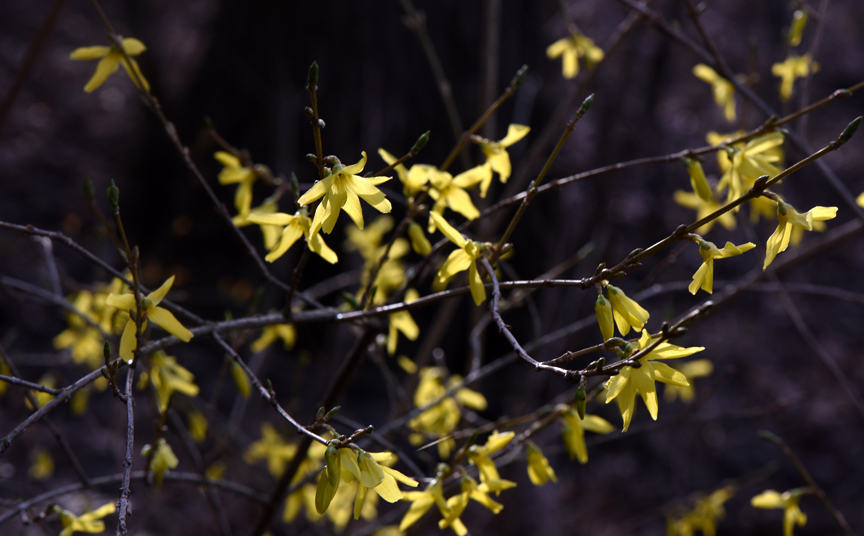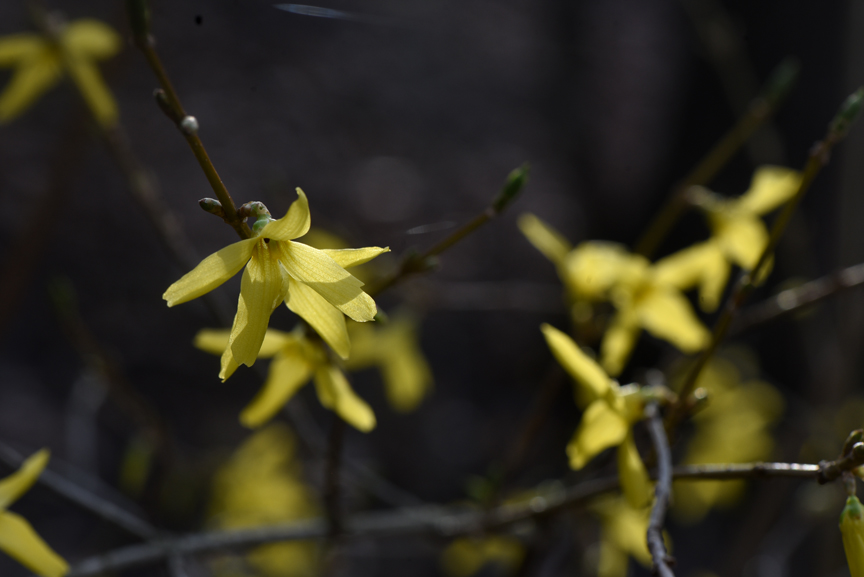Forsythia blooms signal it’s time to apply organic lawn weed control
Posted on: April 8, 2019 | Written By: Doug Oster |
When the luminescent forsythia flowers appear, they indicate it’s time to apply corn gluten meal to the lawn as a safe way to prevent crabgrass and other weeds.

When forsythia bloom, it’s time to apply corn gluten meal as a safe weed control. Photos by Doug Oster
Corn gluten meal is a byproduct of the corn milling process and is a great weed control. When applied, the corn gluten will stop seeds from completing the germination process, drying them out. Since crabgrass is an annual, putting on the product before the seeds sprout is critical to stopping the spread of the weed.
Corn gluten stops all seeds from sprouting though, so that means grass seed is planted about eight weeks after the corn gluten. The forsythia blooms just before the crabgrass sprouts, so that’s how we know it’s time to use the product.

When forsythia bloom, it’s time to apply corn gluten meal.
Any good nursery will have corn gluten. It’s a granular product that can be run through a spreader. It’s also ground differently when used as a food additive for livestock. Find corn gluten at a feed store and it will be cheaper, but it won’t go through a spreader. Since it’s benign to us, we could apply it with our hands. It’s a completely safe and easy way to deal with annual weed seeds. Existing dandelion plants or other perennial weeds are unaffected by corn gluten, but any seeds the plant has thrown will not sprout when the product is applied.
There are other ways to use corn gluten in the garden, too. The key is understanding how it works. A good example is a bed of bean seeds. Once they emerge, now corn gluten can be applied to stop any weed seeds from sprouting. It could be used in perennial beds, under tomato or pepper plants, anywhere in the garden we’re not planting seeds.
There’s no reason to be exposed to dangerous chemicals when dealing with weeds. There are plenty of other organic weed controls out there that will keep the garden weedless but also be safe for you, your family, the environment and everyone who lives downstream.
Doug Oster is editor of Everybody Gardens, a website operated by 535Media, LLC. Reach him at 412-965-3278 or doster@535mediallc.com. See other stories, videos, blogs, tips and more at everybodygardens.com.
More from Everybody Gardens-
Electric lawn equipment is powerful, quiet and good for the environment